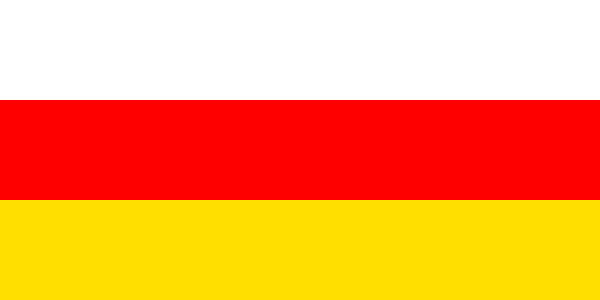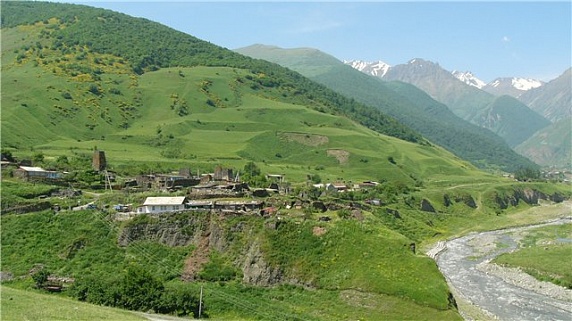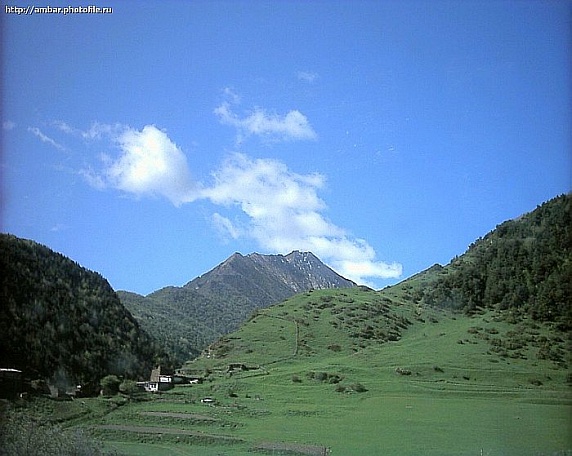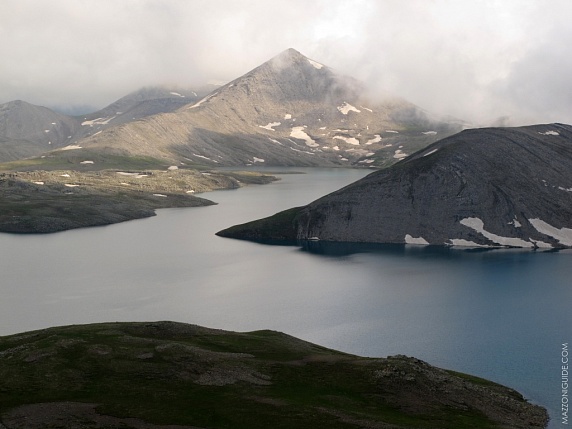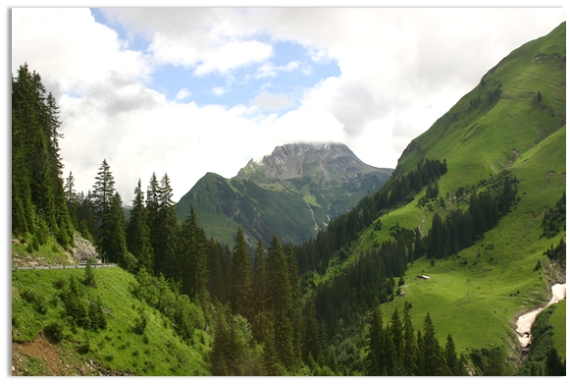 República de Osetia del Sur
República de Osetia del Sur
Interview of the Russian Foreign Minister Sergey Lavrov by the Abkhazian State Television and Radio Broadcasting Company, Moscow, 25 August 2013
Question: Abkhazia is on the eve of its anniversary. Five years ago the Russian Federation acknowledged the sovereignty of Abkhazia and South Ossetia in very complicated conditions. This allowed the removal of tensions in the region and the countries became entities under international law. What is your assessment of the situation today?
Sergey Lavrov: The decision made on the 26 August 2008 regarding the acknowledgement of independence of the Republic of Abkhazia and the Republic of South Ossetia was a very difficult one. It was made based on a very deep comprehensive analysis of the situation, which led the Russian Government to the conclusion that it would be very hard – if not impossible – to ensure not only the security of Abkhazia and South Ossetia, but also the survival of these peoples without the acknowledgement of independence of these Republics, without the establishment of allied relations. The treacherous attack (of Georgia) on South Ossetia was not a single act. According to established facts, the same thing was also being prepared for Abkhazia.
Our relations have a long history, but unfortunately, they have been far from trouble-free, and this was not the fault of Abkhazians and South Ossetians. We all know what the attitude to these Republics was in Soviet times. I will not go into detail, but the most serious strike out at the relationship with Georgians, Ossetians and Abkhazians was certainly the enthronement of Mr Gamsakhurdia in Tbilisi, who proclaimed a true chauvinistic course, in fact, a course for ethnic cleansing: "Georgia for the Georgians", "Abkhazians need to be naturalized", "Ossetians should get behind the Caucasus Mountain Range". It was back then when the war started, when the Georgians using their right for a referendum on withdrawal from the USSR provided under Soviet law, refused Abkhazia and South Ossetia that very same right, although it was envisaged for autonomous republics under the same law.
Everybody knows when the war started, how bloody it was, how the Russian Federation helped stop it and finally bring this process to the negotiation table. Besides, we did not hide our aspirations to really help in reaching the agreements between Tbilisi and Sukhumi, Tbilisi and Tskhinvali. An international structure under the aegis of the UN was acting for Abkhazia helping to find an agreement. A similar structure under the aegis of the Organisation of Islamic Cooperation was working for South Ossetia. Unfortunately, the Georgian party had been trying to restore territorial integrity by force during all these years, especially, when Mr Saakashvili acceded to power. The events of August 2008, when the treacherous order to attack the sleeping city was given, became the quintessence of the policy, which Mr Saakashvili was trying to pursue. We certainly took into account the totality of all these factors, when making our decisions about the acknowledgement of the independence of Abkhazia and South Ossetia.
Many things have been done since then. We are allies, we have an Agreement on friendship, cooperation and mutual assistance, a very full and complete legal framework, about 80 interstate and intergovernmental agreements. Another 30 documents are at the negotiation stage. In the new Foreign Policy Concept of the Russian Federation relations with Abkhazia and South Ossetia are included in a special chapter. We are interested in continuing to provide assistance to the Republic of Abkhazia ensuring its security, social and economic restoration, strengthening its international position and the establishment of the country in general as a modern and democratic state, where all people irrespective of their ethnic or other origin, feel equal, free and protected by the law. The course for consistent support of the Republic of Abkhazia to build such a state was recently confirmed by the President of Russia Vladimir Putin at his meeting with President Aleksandr Ankvab.
Our position is not volatile, we are sincerely interested in faster restoration of infrastructure in the social and economic sphere, and for that purpose we provide assistance, including financial. Mechanisms of interaction with the Republic of Abkhazia and the Republic of South Ossetia are operative, in particular, intergovernmental commissions on trade and economic cooperation headed by the Vice Prime Minister of the Russian Government, Alexander Khloponin, and an interagency commission created in addition to these and headed by the Assistant to the President, Tatyana Golikova, and the Deputy Secretary of the Security Council of Russia, Rashid Nurgaliyev. This all helps to ensure more coordination in the targeting actions of our economic and other agencies for effective assistance to the Republic of Abkhazia. Certainly our goal is to make all these mechanisms work effectively, with maximum benefit for the country, for Abkhazian citizens. Gradually we hope to create conditions for our cooperation to become more mutually beneficial and the economy of Abkhazia to become self-reliant. Certainly not 100%, but there is room for that and the investment projects which are currently being discussed now and which will play a significant role here. In general, I am convinced that we have good prospects, not to mention centuries-long traditional links, which have always been enriched by human communication, and cooperation in the area of science, culture and education. All this is in demand among Russian and Abkhazian nationals.
From the point of view of the international positions of the Republics of Abkhazia and South Ossetia, in my opinion, there is a strong prejudice expressed by our Western partners and some other countries, when they view the events in the Caucasus. They see and know the real situation, but are trying to apply double standards through inertia and to politicise the attitude to the already established fact of the independence of the Republic of Abkhazia and the Republic of South Ossetia. Nevertheless, in this situation Abkhazia continues to maintain contacts, exchange visits with the countries, which had acknowledged it. We welcome this and think that the number of such countries will increase. From our contacts with the diplomatic corps represented in Moscow, we know that the ambassadors of Abkhazia and South Ossetia are conversation partners who are significantly in demand by many heads of diplomatic missions from western and developing countries. Certainly the fact that Geneva talks have been ongoing for more than 3 years is an important indicator that the real situation should still be taken into account, rather than just dealing with unilateral propaganda. The reality of it all and the Geneva talks are acknowledged, because in this format Abkhazia and South Ossetia are equal participants in the discussion of security issues in the Caucasus together with representatives of Russia, the United States, the OSCE, the UN, the European Union and Georgia. Despite the fact that steps forward are very slow, in general, we have a common understanding – and we hope that it will be implemented in the future – about the need to agree once and forever not to use force. There are specific propositions to that end. We just need to discuss them sincerely and look at the existing reality. And the reality is – it is Abkhazia and Georgia, South Ossetia and Georgia, who need to agree.
I am convinced that for the benefit of us all – primarily in the interests of Abkhazians, Ossetians, and Georgians – we have to establish neighbourly relations in this region. We note the statement of the new Georgian Government about their aspiration to establish such relations. Russia welcomes this. We think that, if we start with the interests of ordinary people, help them establish links in issues of everyday life, implement their interests, all geopolitical prejudices may be put aside. We need to start from the existing state of affairs and think about people, not about geopolitical ambitions, even more so because, as we have said many times, they are absolutely not implementable.
In completing my answer to this question, I would like to say that many things have been done, but there is still much more to achieve ahead of us. As we have felt from our contacts with our Abkhazian friends, they are ready for that.
Question: We have two big anniversaries this year – five years since the acknowledgement of the sovereignty of Abkhazia, and 20 years since the victory of the Abkhazian people in the Great Patriotic War. We would like to hear your wishes to the Abkhazian people.
Sergey Lavrov: I have already touched upon the tragic pages of the fate of the Abkhazian people in my answer to the previous question. I wish them the main thing – peace, so no more blood is ever spilled, but the Abkhazian people are not discriminated against and are open to cooperation with their neighbours, with Russia, of course, with everybody living in the Caucasus. We can only make this region flourish together, only united can we achieve competitiveness in the world, which is becoming more and more globalized. We need to combine our efforts to achieve positive results to the maximum extent both for the country and its people.
